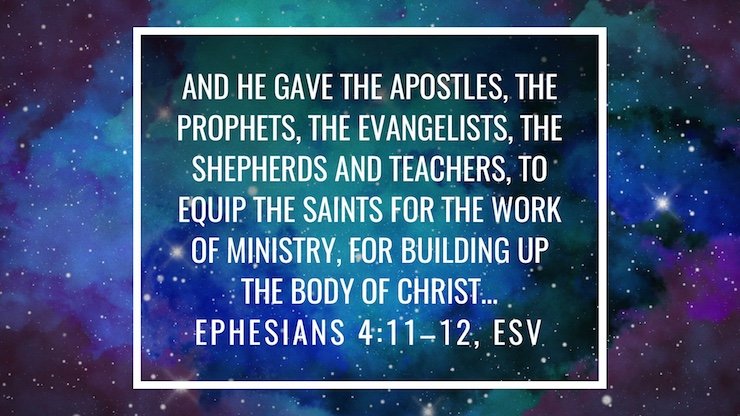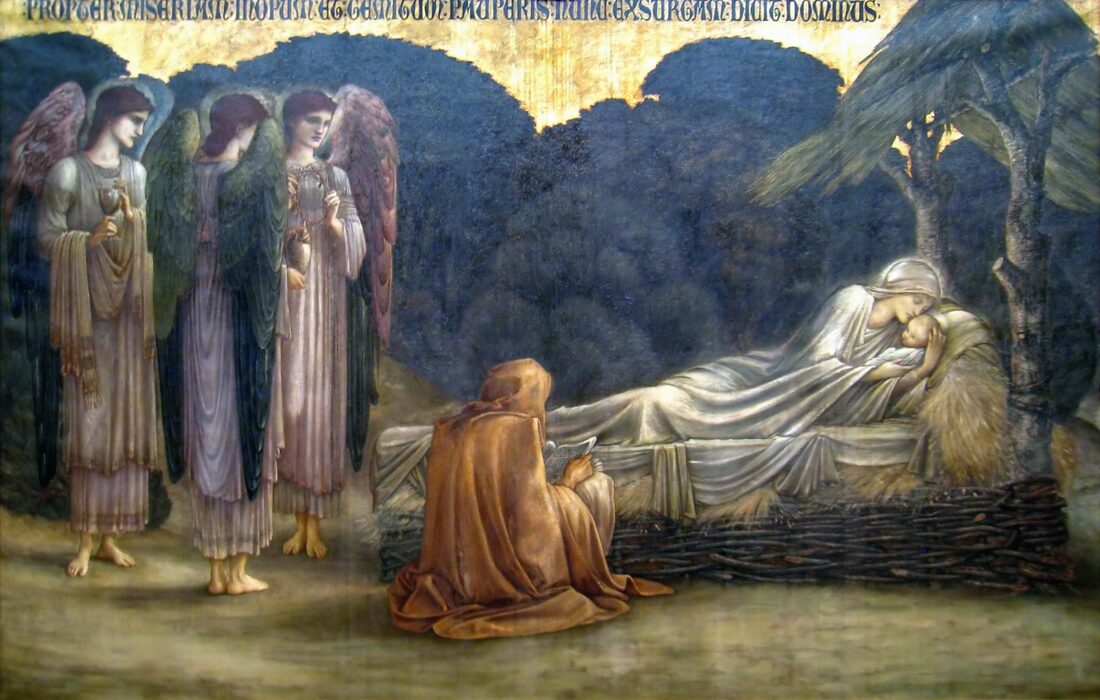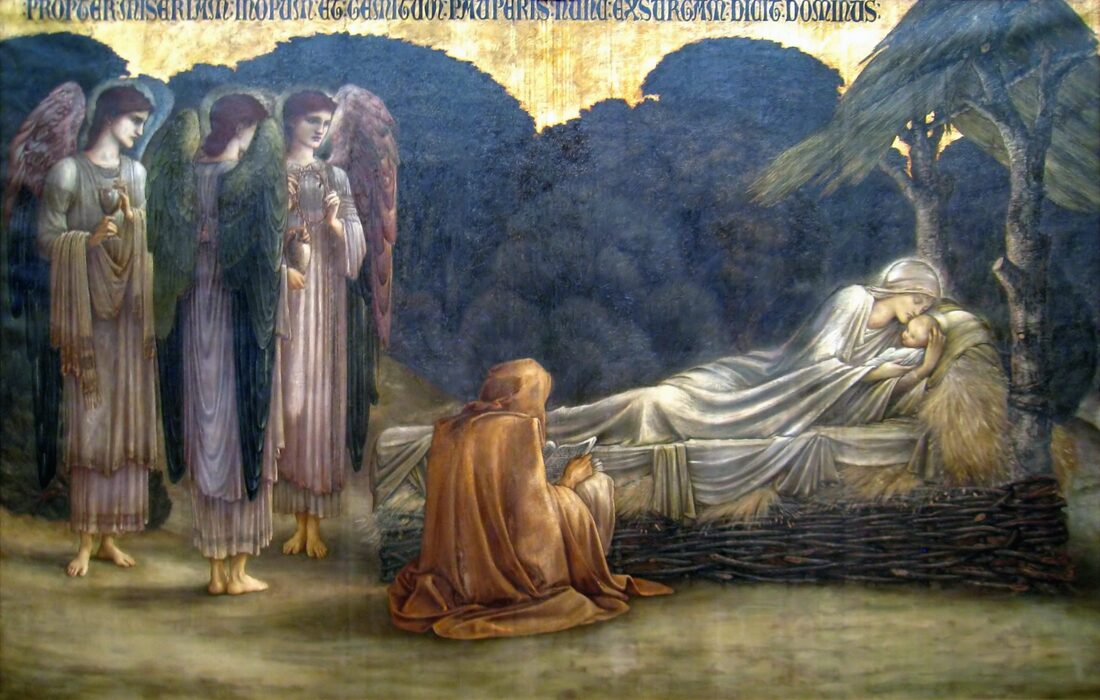January is not my favorite month. It's negative 85 degrees, there's no Christmas to be excited about, and a lot of decorations to take down as you reminisce on two more months of ungodly weather.
The Good Lord KNOWS that ain't
where my joy is!
I appreciate many blessings in
this life,
but the joy that sustains me
is built in the life to come.
Just HOW
was that overcoming
Joy Built?
THROUGH overcoming
STRUGGLES
The writer of Hebrews opens chapter 11 with a
brief description
of faith:
“Now faith is the substance of things
hoped for,
the evidence of things not seen”
(Hebrews 11:1, NKJV)
This statement should not be regarded as a
complete definition of faith.
Instead,
the author focuses on two critical aspects
of a much broader
theological concept to introduce a
famous gallery
of Old Testament heroes of faith.
The first vital facet of faith is that it is
“the substance of things hoped for.”
In Philippians 4:7 we have a wonderful promise:
"The peace of God, which passes
all understanding,
will guard your hearts and your minds
in Christ Jesus.”
It is important to note the
context of this promise,
because that’s where we find the condition:
“Do not be
anxious about anything,
but in every situation,
by prayer and petition,
with thanksgiving,
present your requests to God”
(verse 6)
God’s peace is promised to guard those
who pray--
with thanksgiving—about everything.
This peace will
transcend
our ability
to understand it
There are
other gifts of God that
are
not fully comprehensible
to us.
The gift of salvation is
"INDESCRIBABLE”
(2 Corinthians 9:15)
The complexity and wisdom of God’s plan is inscrutable
(Isaiah 55:8–9).
According to Ephesians 3:19,
the LOVE
of CHRIST is something
else so GREAT
we will
never Fully understand it
Likewise,
human reasoning is incapable
of fully comprehending
the Peace of God
The believer who places his or her full confidence in a loving God and is thankful in every circumstance will
possess a supernatural peace.
An inner calm will dominate the heart.
The faithful believer will know peace--
his heart and mind are “guarded” by it—despite the
tempest raging without.
No one, especially those outside of Christ,
will be able to fathom that peace.
To most,
it will remain a mystery
how someone
can be so
serene in the midst of turmoil
The peace
that
comes from being in
a RIGHT relationship
with God is
not the peace of
"THIS world"
The world’s peace depends on having favorable circumstances
: if things are going well, then we feel peaceful;
when things go awry, the peace quickly dissipates.
Jesus
made the distinction
between His peace
and the world’s
vacillating peace:
“Peace I leave with you;
MY PEACE
I GIVE YOU
I do NOT Give to you
as the
WORLD GIVES”
(John 14:27).
God’s supernatural peace
surpasses natural understanding.
A cancer patient who experiences a remission of the disease may proclaim, “I am so thankful to God!” That is praise. A cancer patient who is dying and in pain may calmly say, “Everything is all right. I claim Romans 8:28, and I have peace in my heart.” That is “the peace that passes all understanding.”
The word for “substance” (KJV, NKJV) in the clause faith is the substance of things hoped for, is alternatively translated as “assurance” (ESV), “confidence” (NIV), and “the reality” (NLT). In the original Greek, the term conveys the idea of “a firm foundation,” “the real being,” “the actual existence,” “the substantial nature,” and “a resolute trust.” One sense of the word refers to a title deed or a legal document guaranteeing the right to possess a property.
According to Moulton and Milligan in Vocabulary of the Greek New Testament, “faith is the substance of things hoped for” could be translated “faith is the title-deed of things hoped for” (Robertson, A. T., Word Pictures in the New Testament, Nashville: Broadman Press, 1960). Another commentary suggests that faith, as described in Hebrews 11:1, “apprehends reality: it is that to which the unseen objects of hope become real and substantial. Assurance gives the true idea. It is the firm grasp of faith on unseen fact” (Vincent, M. R., Word Studies in the New Testament, Vol. 4, New York: Charles Scribner’s Sons, 1887, p. 510).
The clause faith is the substance of things hoped for describes a conviction that already takes custody—here and now—of what we hope for and what God has promised us in the future. This present-day ownership of things hoped for and promised in the future is an inner reality. Right now, amid a global pandemic, financial crisis, and social unrest, as our world seems to be falling apart, we can stand on the rock-solid, unshakeable promises of God’s security, rest, peace, provision, mercy, grace, and salvation. His Word can be trusted. We can have full confidence in the Lord’s promises because they are real and a firm foundation for this life.
This “substance” or “assurance” describes our inward response to God’s trustworthy, unfailing nature. We can be sure of the Lord’s promises because, as the writer of Hebrews goes on to show, biblical heroes of every generation have proven them to be true: “By faith Abel brought God a better offering than Cain did. By faith he was commended as righteous, when God spoke well of his offerings. And by faith Abel still speaks, even though he is dead. By faith Enoch was taken from this life, so that he did not experience death” (Hebrews 11:4–5). On and on goes the list. By faith Noah built the ark, saved his family, and became an heir of righteousness (Hebrews 11:7). By faith Abraham obeyed God and moved from his homeland (verses 8–10).
The writer of Hebrews presents example after example of those who demonstrated faith as the substance of things hoped for: “All these people were still living by faith when they died. They did not receive the things promised; they only saw them and welcomed them from a distance, admitting that they were foreigners and strangers on earth” (Hebrews 11:13). From the patriarchs to King David to anonymous champions of faith, believers have trusted in God’s promises despite enduring unimaginable challenges (verses 17–38).
Faith, being the substance of things hoped for, is also an outward force. Possessing the reality of hope supplies believers with the motivation to endure trials and hardships. It results in decisive obedience—the kind that caused the ancient heroes of faith to act upon their hope. Faith, as the substance of things hoped for, activates believers to preach boldly, pray unceasingly, love unconditionally, serve compassionately, and work tirelessly “as long as it is day” (John 9:4). The inward substance of faith moves our hearts while the external reality moves mountains.
When a Christian utters the phrase all things work together for good, he or she is referring to a portion of one of the most quoted, claimed verses in the New Testament, Romans 8:28: “And we know that in all things God works for the good of those who love him, who have been called according to his purpose.” Or, as the KJV translates it, “And we know that all things work together for good to them that love God, to them who are the called according to his purpose.”
God works all things together for good—both His good and our good. As God is glorified, His people benefit.
In Romans 8, Paul contrasts a life lived in selfish pursuits (the flesh) and one lived in league with, or in accordance with, God (the Spirit). He impresses upon readers that our sovereign God is all-knowing, all-wise, and all-powerful.
Those who love God can trust His goodness, His power, and His will to work out all things for our good. We journey together with Him.
The promise that God works all things together for good does not mean that all things, taken by themselves, are good. Some things and events are decidedly bad. But God is able to work them together for good. He sees the big picture; He has a master plan.
Neither does the promise that God works all things together for good mean we will acquire all that we want or desire. Romans 8:28 is about God’s goodness and our confidence that His plan will work out as He sees fit.
Since His plan is always good, Christians can take confidence that,
no matter our circumstances or environments,
God is active and will conclude things according to
His good and wise design.
With this knowledge we can learn to be content
(see Philippians 4:11).
The fact that
God works all things together for good
means
God’s plan will not be thwarted
In fact, we are part of His plan, having been “called according to his purpose” (Romans 8:28). When we trust God and His way, we can be sure that He is active and powerful on our behalf (see Ephesians 3:20).
God knows the future, and His desires will be accomplished. “I make known the end from the beginning, from ancient times, what is still to come. I say, ‘My purpose will stand, and I will do all that I please’” (Isaiah 46:10). Even when things seem chaotic and out of control, God is still in charge. We sometimes worry about what’s happening to us because we do not know what is best for us. But God does.
The principle of God working all things together for good is well illustrated in the Old Testament account of Joseph’s life. Early in Joseph’s life, Joseph’s jealous brothers sold him into slavery. In Egypt, Joseph rises to a position of responsibility. Then, he is unjustly imprisoned and forgotten about by his friends. God gifts him the ability to interpret dreams, and through that ability Joseph is once again raised to a place of honor and power. When drought forces Joseph’s brothers to seek food elsewhere, they travel to Egypt and encounter Joseph, who eventually saves them from starvation and grants them a livelihood in his new land.
Throughout his life, Joseph trusted God no matter his good or bad circumstances. Joseph experienced plenty of bad things: kidnapping, slavery, false accusations, wrongful imprisonment, rejection, and famine. But in the end God brought things to a wonderful, life-affirming conclusion. God blessed Joseph’s entire family through those painful circumstances and through Joseph’s faith. (You can read about Joseph’s life beginning in Genesis 37.)
Paul’s life is another testament to how God works
all things together for good.
Paul suffered
shipwrecks,
beatings, imprisonment,
murder attempts,
temporary blindness,
and more—all within
God’s plan to spread the gospel
(see Acts 9:16 and 2 Corinthians 11:24–27).
Through it all, God was steadfastly working
to bring about good and glorious results.
After promising that God works all things together for our good, Romans 8 concludes with the wonderful fact that God trumps everything that comes against Him and those who belong to Him. The Christian is assured that nothing can ever separate us from God’s love: “Who shall separate us from the love of Christ? Shall trouble or hardship or persecution or famine or nakedness or danger or sword? . . . No, in all these things we are more than conquerors through him who loved us. For I am convinced that neither death nor life, neither angels nor demons, neither the present nor the future, nor any powers, neither height nor depth, nor anything else in all creation, will be able to separate us from the love of God that is in Christ Jesus our Lord” (Romans 8:35–39). God’s love is everlasting, and His wisdom is infinite. It doesn’t matter who or what attempts to thwart God’s plan; no one and nothing can. God will work all things together for the good of those who love Him. Our decision to align our will with God’s and to always trust Him will be rewarded.
After this manner therefore pray ye:
Our Father which art in heaven, Hallowed
be thy name
Thy kingdom come, Thy will be done in earth,
as it is in heaven.
Give us this day our daily bread.
And forgive us our debts, as we forgive our debtors.
And lead us not into temptation, but deliver us from evil:
For thine is the kingdom, and the power,
and the glory, for ever.
Amen
Forgiveness in the Bible is a “release” or a “dismissal” of something. The forgiveness we have in Christ involves the release of sinners from God’s just penalty and the complete dismissal of all charges against us (see Romans 8:1). Colossians 1:14 says that in God’s beloved Son “we have redemption, the forgiveness of sins.” The Amplified Bible translates the last phrase like this: “the forgiveness of our sins [and the cancellation of sins’ penalty].” God’s gracious forgiveness of our sin is to be the measure of our gracious forgiveness of others (Ephesians 4:32).
To some people, forgiveness may seem like weakness or letting an undeserving person win, but it has no connection to weakness or even to emotions. Instead, forgiveness is an act of the will. Forgiveness is not granted because a person deserves to be forgiven. No one deserves to be forgiven. Forgiveness is a deliberate act of love, mercy, and grace. Forgiveness is a decision to not hold something against another person, despite what he or she has done to you.
What is forgiveness in relation to salvation?
Forgiveness is an integral part of salvation.
When Jesus forgives us, our sins, trespasses, iniquities, and transgressions are erased, wiped off the record. Forgiveness of sin is comparable to financial debt being erased. When Jesus said, “It is finished,” from the cross (John 19:30), He was literally saying, “It is paid in full” (tetelestai in Greek). Jesus took the punishment we deserved, so, when God forgives us of our sins, we are free; we no longer live under that debt. Our sins are wiped out. God will never hold that sin against us (Psalm 103:12).
It is impossible to have salvation without forgiveness. Salvation is God’s deliverance from the consequences of sin. God’s salvation in Christ is the ultimate example of extending forgiveness. God’s forgiveness must be accepted through repentance and faith. Have you accepted forgiveness from God?
What is forgiveness of others?
Forgiveness is also an essential part of the life of believers. Ephesians 4:32 commands, “Be kind and compassionate to one another, forgiving each other, just as in Christ God forgave you.” Similarly, Colossians 3:13 says, “Bear with each other and forgive whatever grievances you may have against one another. Forgive as the Lord forgave you.” The key in both passages is that we are to forgive others as God has forgiven us. Why do we forgive? Because we have been forgiven!
The Bible tells us that we are to forgive those who sin against us. We keep no record of wrongs (1 Corinthians 13:5) but forgive as many times as necessary (Matthew 18:21–22). Refusing to forgive a person demonstrates resentment, bitterness, and anger, none of which are the traits of a growing Christian. Biblically, forgiveness is not just something that the offended person offers; it requires the offender to receive it, bringing reconciliation to the relationship.
God promises that, when we come to Him confessing our sin and asking for forgiveness, He freely grants it for the sake of Christ (1 John 1:9). Likewise, the forgiveness we extend to others should know no limits (Luke 17:3–4).
“But we all, with unveiled face, beholding as in a mirror the glory of the Lord, are being transformed into the same image from glory to glory, just as from the Lord, the Spirit” (2 Corinthians 3:18, NASB).
With those few words—“from glory to glory”—Paul sums up our entire Christian life, from redemption and sanctification on earth, to our glorious eternal welcome into heaven. There is a great deal of content packed into those few words. It’s all so important that Paul labors at great length, from 2 Corinthians 2:14 through the end of chapter 5, to open his readers’ eyes to a great truth. Let’s see why that truth matters so much.
The same Greek word for “glory” is used twice in the phrase from glory to glory, yet each usage refers to something different. The first “glory” is that of the Old Covenant—the Law of Moses—while the second is that of the New Covenant, the gospel of Jesus Christ. Both have astonishing splendor.
The Old Covenant was given to Moses directly from God, written by God’s own finger (Exodus 31:18). That root of our Christian faith is glorious indeed; it’s the glory we’re coming “from.” Yet the New Covenant, the glory we’re going “to,” far surpasses that of the Old.
The transformation is from the glory of the Law. Like the stone it was written on, the Law was inflexible and absolute, applying to all Israelites without much regard for individual circumstances (Hebrews 10:28). Though holy, good, and righteous in itself (Romans 7:12), the Law was, for us sinners, the letter that kills us (2 Corinthians 3:6). The Law was an external force to control behavior. In addition, stone, despite its strength, is earthly and will eventually wear away. The Law was merely a temporary guardian (Galatians 3:23–25) until something better came along.
The transformation is to the glory of the New Covenant, which far surpasses the Old in every way. It forgives us of our sin and gives us sinners life (John 6:63). It is written on believers’ hearts by the Holy Spirit (Jeremiah 31:33; 2 Corinthians 3:3), so our obedience to God springs up from within us by God-given desires rather than by threats of legal punishment. In place of a cold set of writings as a guide for pleasing God, we now have Father, Son and Holy Spirit making their home with us, fellowshipping in loving intimacy, teaching us everything we must know and do (John 14:23; 16:13). That position in Christ is as permanent, eternal, and spiritual as God Himself, rather than temporary and earthly.
Paul is intent on directing
Christians
to focus on the
spiritual glory
of the
New Covenant
rather than physical glory of the Old,
as many
Jews in his day refused to do.
He compared the two types of glory by recalling how Moses absorbed and reflected God’s glory for a time after being in his presence (2 Corinthians 3:7–11, 13; cf. Exodus 34:29–35). Though Moses’ glow had a spiritual cause, there was nothing spiritual about the effect—any person, regardless of his relationship with God, could see the glow on Moses’ face, which he covered with a veil.
Not so the glory of the New Covenant. That can be seen only with a believer’s spiritual eyes—what Paul is doing his best to open, so that we discern the gospel’s glory. So he writes, “For God, who said, ‘Let light shine out of darkness,’ made his light shine in our hearts to give us the light of the knowledge of God’s glory displayed in the face of Christ” (2 Corinthians 4:6).
But, as we move from glory to glory, there’s something even more important about the glory of the New Covenant that Christians must understand: its supernatural power to transform us. And that brings us to God’s ultimate purpose and destination for every believer, to transform us into the image of his own beloved Son (2 Corinthians 3:18; Romans 8:28–30; Philippians 3:20–21).
Before he finishes with the topic of being transformed from glory to glory, Paul presents yet one more astonishing claim: “Therefore, if anyone is in Christ, he is a new creation; the old has gone, the new has come!” (2 Corinthians 5:17).
This is the invitation the Lord makes to all Christians, to have our lives radically transformed here and now, by opening our eyes to see the glorious journey He is taking us on “from glory to glory.”
The clause “the Lord is my shepherd” comes from one of the most beloved of all passages of Scripture, the 23rd Psalm. In this passage and throughout the New Testament we learn that the Lord is our Shepherd in two ways. First, as the Good Shepherd, He laid down His life for His sheep and, second, His sheep know His voice and follow Him (John 10:11, 14).
In Psalm 23, God is using the analogy of sheep and their nature to describe us. Sheep have a natural tendency to wander off and get lost. As believers, we tend to do the same thing. It’s as Isaiah has said: “We all, like sheep, have gone astray, each of us has turned to his own way” (Isaiah 53:6). When sheep go astray, they are in danger of getting lost, being attacked, even killing themselves by drowning or falling off cliffs.
Likewise, within our own nature there is a strong tendency to go astray (Romans 7:5; 8:8), following the lusts of our flesh and eyes and pursuing the pride of life (1 John 2:16). As such, we are like sheep wandering away from the Shepherd through our own futile self-remedies and attempts at self-righteousness. It is our nature to drift away (Hebrews 2:1), to reject God, and to break His commandments. When we do this, we run the risk of getting lost, even forgetting the way back to God. Furthermore, when we turn away from the Lord, we soon find ourselves confronting one enemy after another who will attack us in numerous ways.
Sheep are basically helpless creatures who cannot survive long without a shepherd, upon whose care they are totally dependent. Likewise, like sheep, we are totally dependent upon the Lord to shepherd, protect, and care for us. Sheep are essentially dumb animals that do not learn well and are extremely difficult to train. They do not have good eyesight, nor do they hear well. They are very slow animals who cannot escape predators; they have no camouflage and no weapons for defense such as claws, sharp hooves, or powerful jaws.
Furthermore, sheep are easily frightened and become easily confused. In fact, they have been known to plunge blindly off a cliff following one after another. Shepherds in Bible times faced incredible dangers in caring for their sheep, putting their own lives at risk by battling wild animals such as wolves and lions who threatened the flock. David was just such a shepherd (1 Samuel 17:34–35). In order to be good shepherds, they had to be willing to lay down their lives for the sheep.
Jesus declared that He is our Shepherd and demonstrated it by giving His life for us. “The Son of Man did not come to be served, but to serve, and to give His life a ransom for many” (Matthew 20:28). Through His willing sacrifice, the Lord made salvation possible for all who come to Him in faith (John 3:16). In proclaiming that He is the good shepherd, Jesus speaks of “laying down” His life for His sheep (John 10:15, 17–18).
Like sheep, we, too, need a shepherd. Men are spiritually blind and lost in their sin. This is why Jesus spoke of the parable of the lost sheep (Luke 15:4–6). He is the Good Shepherd who laid down His life for us. He searches for us when we’re lost, to save us and to show us the way to eternal life (Luke 19:10). We tend to be like sheep, consumed with worry and fear, following after one another. By not following or listening to the Shepherd’s voice (John 10:27), we can be easily led astray by others to our own destruction. Jesus, the Good Shepherd, warns those who do not believe and listen to Him: “I did tell you, but you do not believe . . . you do not believe because you are not my sheep. My sheep listen to my voice; I know them, and they follow me. I give them eternal life, and they shall never perish; no one can snatch them out of my hand” (John 10:25–28).
Psalm 23:1–3 tells us that the shepherd meets the sheep’s every need: food, water, rest, safety, and direction. When we as believers follow our Shepherd, we, too, know that we will have all we need. We will not lack the necessities of life, for He knows exactly what we need (Luke 12:22–30).
Sheep will not lie down when they are hungry, nor will they drink from fast-flowing streams. Sometimes the shepherd will temporarily dam up a stream so the sheep can quench their thirst. Psalm 23:2 speaks of leading the sheep “beside the quiet [stilled] waters.” The shepherd must lead his sheep because they cannot be driven. Instead, the sheep hear the voice of their shepherd and follow him—just as we listen to our Shepherd, Jesus Christ—in His Word and follow Him (John 10:3–5, 16, 27). And if a sheep does wander off, the shepherd will leave the flock in charge of his helpers and search for the lost animal (Matthew 9:36; 18:12–14; Luke 15:3–7).
In Psalm 23:3, the Hebrew word translated “paths” means “well-worn paths or ruts.” In other words, when sheep wander onto a new path, they start to explore it, which invariably leads them into trouble. This passage is closely akin to the warning in Hebrews 13:9: “Do not be carried away by all kinds of strange teachings.” The apostle Paul also alludes to this idea in Ephesians 4:14.
Finally, the shepherd cares for the sheep because he loves them and wants to maintain his own good reputation as a faithful shepherd. As we’ve seen in Psalm 23, the analogy of the Lord as the Good Shepherd was also applied by Jesus in John chapter 10. In declaring that He is the shepherd of the sheep, Jesus is confirming that He is God. The Eternal God is our Shepherd. And we would not want it any other way.
In Galatians 5:1, Paul reminds the Galatian believers that “it is for freedom that Christ has set us free.” Believers’ sins are forgiven on the basis of Christ’s perfect sacrifice. Now believers can live in freedom from the law, and they can live in freedom from the consequences and power of sin. The NLT says, “Christ has truly set us free”; believers are “truly free” to live for the things of God.
The occasion of Paul’s letter to the Galatians was that false teachers had come into the churches there. These teachers promoted legalism and tried to require Christians to observe the Old Testament rules, laws, and ceremonies, especially circumcision (Galatians 2:3–5). Paul, in no uncertain terms, says that “for freedom Christ has set us free” and that Christians should not be placed back under the law’s yoke of bondage (Galatians 5:1). The law’s purpose was to reveal our sinfulness (see Romans 3:20) and to bring us to Christ (Galatians 3:24).
Before Christ’s sacrifice, we lived under bondage to the law (Galatians 4:3). We were burdened by demands we could not keep (Acts 15:10). Christ’s death and resurrection broke our bondage to the law. Jesus’ perfect life and holy sacrifice on the cross was the complete fulfillment of the law, and anyone who trusts in Him for salvation is made right with God. Only Christians have true freedom from the law. John 8:36 confirms, “If the Son sets you free, you will be free indeed.”
In Christ, we are free from the Mosaic Law’s oppressive system, and we are also free from the penalty and power of sin. Before Christ, we lived as slaves to sin (John 8:34). We sought to gratify our desires and lived for ourselves. We were dead in our sins (Colossians 2:13) and were destined to face the consequence of our sin, which is death (Romans 6:23). Yet, when we trusted in Christ for our salvation, our course in life completely changed. We were released from the law’s bondage because for freedom Christ has set us free.
Believers are indwelt by the Holy Spirit and are characterized by a joyous freedom to follow Christ and God’s design for life (Galatians 2:20). The Bible is clear that Christian freedom is not a license to sin. Instead, believers are free not to live for sin and are free to live holy lives in Christ. For this freedom Christ has set us free: to live in relationship to God and others the way He intended (Galatians 5:13). Believers are free to live an abundant life (John 10:10), and we have been given everything we need for life and godliness (2 Peter 1:3).
Jesus did what the law could not do—He took away our sin and saved us, and in doing so He set us free from the penalty and power of sin. For freedom to follow His design of life He set us free. “The law of Moses was unable to save us because of the weakness of our sinful nature. So God did what the law could not do. He sent his own Son in a body like the bodies we sinners have. And in that body God declared an end to sin’s control over us by giving his Son as a sacrifice for our sins. He did this so that the just requirement of the law would be fully satisfied for us, who no longer follow our sinful nature but instead follow the Spirit” (Romans 8:3–4, NLT). Now we who have this freedom can live in God’s ways and love others well in the power of the Spirit (Galatians 5:13–26)



















 RSS Feed
RSS Feed
























































